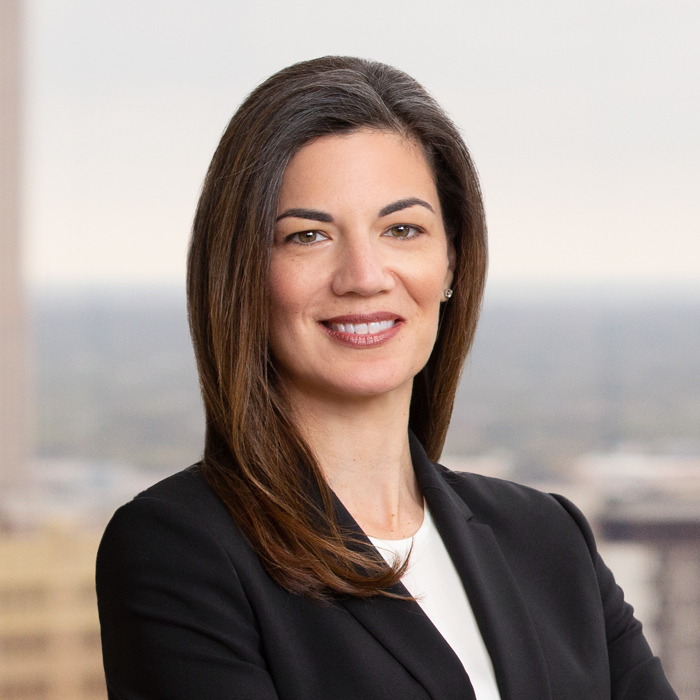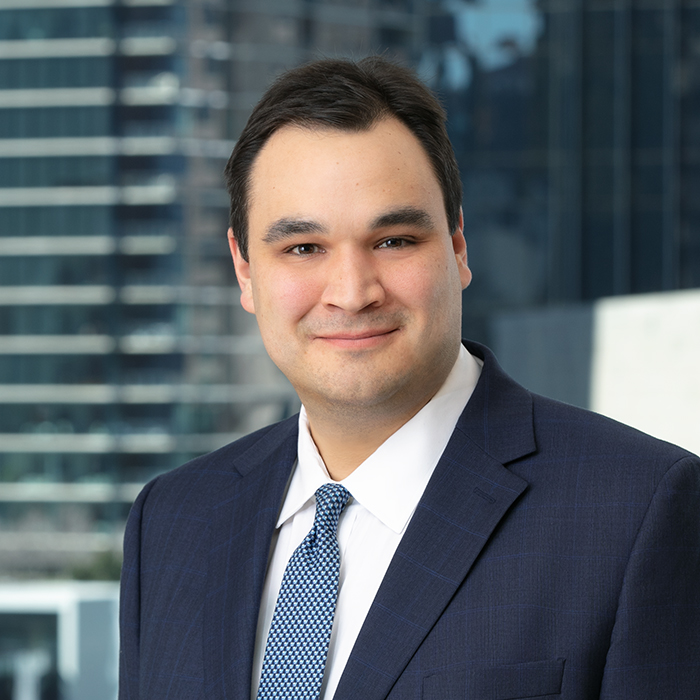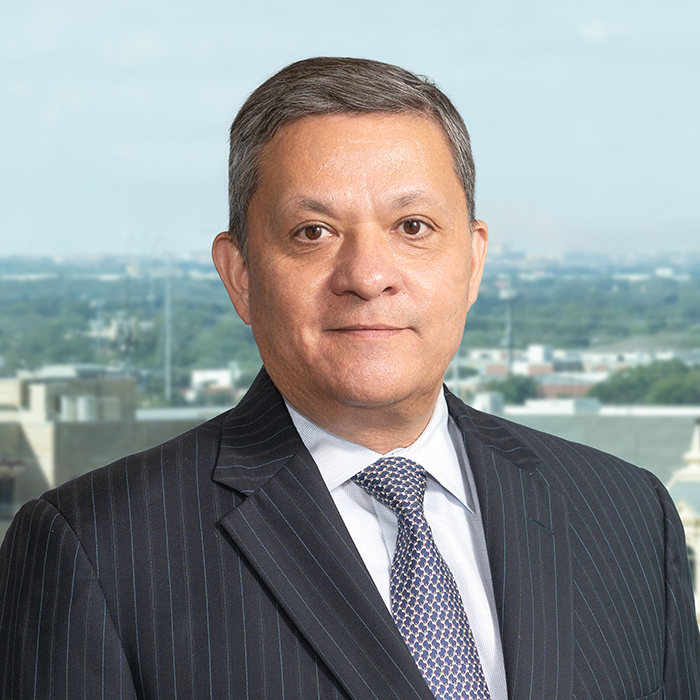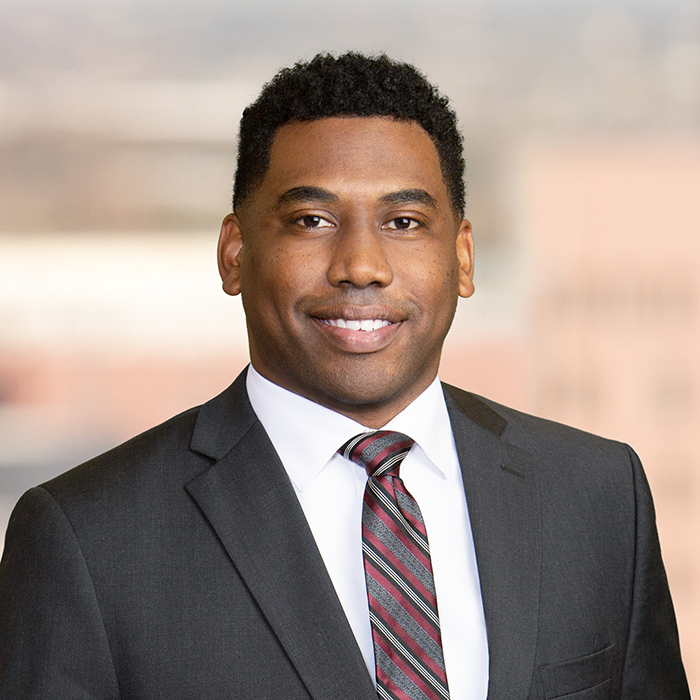Investigations & White Collar Defense
Our Investigations and White Collar Defense team has considerable experience representing businesses and individuals in government investigations and enforcement actions as well as conducting internal investigations. Clients rely on us to be their trusted partners before or after the government initiates an enforcement action. Our talented team regularly advises and represents clients in healthcare fraud, government contract fraud, tax fraud, violations of the Anti-Kickback Statute, mail and wire fraud, money laundering, false statements, worksite enforcement actions, and government program fraud.
Clients also look to us to conduct internal investigations into complex and sensitive matters. With dozens of internal investigation under their belts, our team is adept at evaluating risk and implementing prevention and compliance measures. Importantly, we are able to draw on the knowledge and abilities of our experienced regulatory and industry professionals to develop comprehensive strategies that address not only the case at hand, but the public, media, and related consequences of enforcement actions.
If the client’s best course of action is to go to trial, then the Jackson Walker team can assemble an accomplished trial team with a long record of outstanding results. The team’s collective experience includes:
- trying well over 150 cases to verdict in federal and state courts
- arguing over 20 cases on appeal in federal appellate courts
Our team has deep experience with federal and state prosecutors’ offices in Texas, DOJ Criminal and Civil Fraud Sections in Washington, DC, and U.S. Attorney’s Offices around the country.
We have handled investigations and litigation initiated by virtually every U.S. enforcement agency, including:
- Department of Justice (DOJ)
- Department of Commerce
- Department of Defense (DOD)
- Department of Homeland Security (DHS)
- Department of Health & Human Services (HHS)
- Department of State
- Environmental Protection Agency (EPA)
- Federal Trade Commission (FTC)
- Financial Regulatory Authority (FINRA)
- Internal Revenue Service (IRS)
- Immigration and Customs Enforcement (ICE)
- Office of Inspector General (OIG)
- Office of Foreign Asset Control (OFAC)
- Public Company Accounting Oversight Board (PCAOB)
- Securities and Exchange Commission (SEC)
- State Attorneys General and District Attorneys around the country
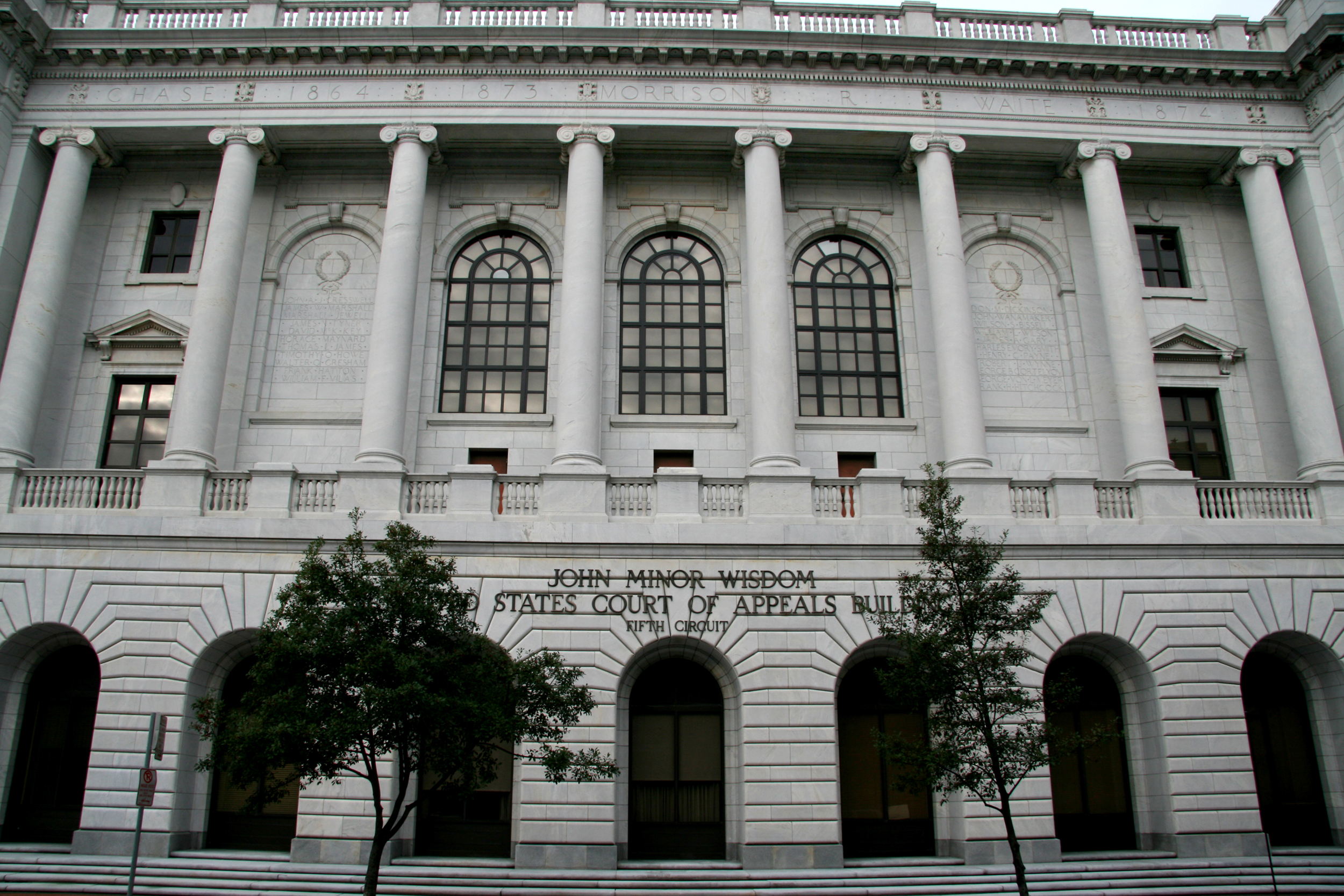
July 3, 2025
Insights
Fifth Circuit Criminal Opinions: Insights and Analyses Part IIII
By Joe Magliolo
Continuing our series summarizing recent Fifth Circuit criminal and civil case opinions, this May 2025 edition highlights cases particularly relevant to white-collar practitioners. This issue features discussions on crimes of violence in the context of sentencing, warrantless protective sweeps, restitution, forfeiture, and the sufficiency of the evidence.

June 6, 2025
Insights
Fifth Circuit Criminal Opinions: Insights and Analyses Part III
By Joe Magliolo
As we continue our series summarizing recent Fifth Circuit criminal opinions, in April the Court addressed a variety of noteworthy topics, including tax fraud, an interlocutory appeal stemming from a mistrial prompted by alleged government misconduct, the Anti-Kickback Statute, the scope of SEC receiverships in securities fraud cases, restitution related to relevant conduct, the scope of plea agreements, a murder-for-hire case involving Rule 404(b), and other issues.

June 5, 2025
Spotlight
Chambers and Partners Releases 2025 USA Guide Featuring 79 Jackson Walker Attorneys and 28 Ranked Departments
Jackson Walker is pleased to announce that Chambers and Partners has selected 79 attorneys and 28 departments for inclusion in the 2025 edition of the Global and USA guides. Attorneys were ranked across 29 departments, with 4 attorneys listed among multiple areas, 9 ranked nationwide in their respective areas, and 12 recognized for the first time.

April 29, 2025
Insights
Fifth Circuit Criminal Opinions: Insights and Analyses Part II
By Joe Magliolo
As we continue our series summarizing recent Fifth Circuit criminal opinions, the latter half of March proved to be particularly noteworthy. The Fifth Circuit addressed a range of cases, including those involving the False Claims Act, the death penalty, and several other criminal matters.

April 3, 2025
Insights
Fifth Circuit Criminal Opinions: Insights and Analyses
By Joe Magliolo
This is the first of a continuing series of summaries written by Jackson Walker partner, Joe Magliolo, and his colleagues, of new, published Fifth Circuit criminal opinions, with occasional forays into other subjects of interest to White Collar/False Claims Act practitioners.

February 26, 2025
Attorney News
Jennifer Freel to Receive Travis County Women Lawyers’ Association Attorney Award for Criminal Justice
Jackson Walker proudly announces that Austin partner Jennifer Freel will be presented with the 2025 Travis County Women Lawyers’ Association Attorney Award for Criminal Justice at the upcoming Annual Grants & Awards Luncheon on Friday, May 2, 2025.

October 4, 2024
Speaking Engagements
Priya Coffey and Jennifer Freel to Present at 32nd Annual Texas Minority Counsel Program
Jackson Walker partners S. Priya Coffey and Jennifer S. Freel will be featured panelists at the 32nd Annual Texas Minority Counsel Program (TMCP), presented by the State Bar of Texas from October 23-25, 2024, at the AT&T Hotel & Conference Center in Austin, Texas.
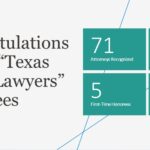
September 17, 2024
Attorney News
Jackson Walker Congratulates Its “Texas Super Lawyers” of 2024
Jackson Walker proudly announces the selection of 71 attorneys to Thomson Reuters’ 2024 “Texas Super Lawyers” list.
Each year, less than 5% of attorneys in Texas are named to the list. Selection is based off of peer nominations that are then reviewed by a research team. Each nominee is evaluated on his or her professional accomplishments, peer recognition, and community involvement.

August 29, 2024
Speaking Engagements
Laura Kidd Cordova to Present at ABA Southeastern White Collar Crime Institute
Jackson Walker partner Laura M. Kidd Cordova will participate in a panel discussion titled “Cross Border Privilege Issues” during the 10th Annual Southeastern White Collar Crime Institute, which will take place from September 4-6, 2024.

August 28, 2024
Speaking Engagements
Laura Kidd Cordova to Present on “False Claims Act Developments” at UT School of Law Government Enforcement Institute; Jennifer Freel Serving on Planning Committee
Jackson Walker partner Laura M. Kidd Cordova will be a panelist at The University of Texas School of Law’s 10th Annual Government Enforcement Institute (UTGEI) on September 19-20. Additionally, Jackson Walker partner Jennifer S. Freel is serving on the UTGEI planning committee.
- Healthcare fraud and anti-kickback claims
- Special inquiries of fraud and misconduct allegations
- Insider trading
- Executive improprieties
- FDA violations
- Whistle-blower allegations under FCA and other bounty programs
- FCPA violations
- RICO violations
- International trade and customs fraud
- Money laundering violations
- Government contracting and procurement fraud
- Public official corruption
- Securities law violations







